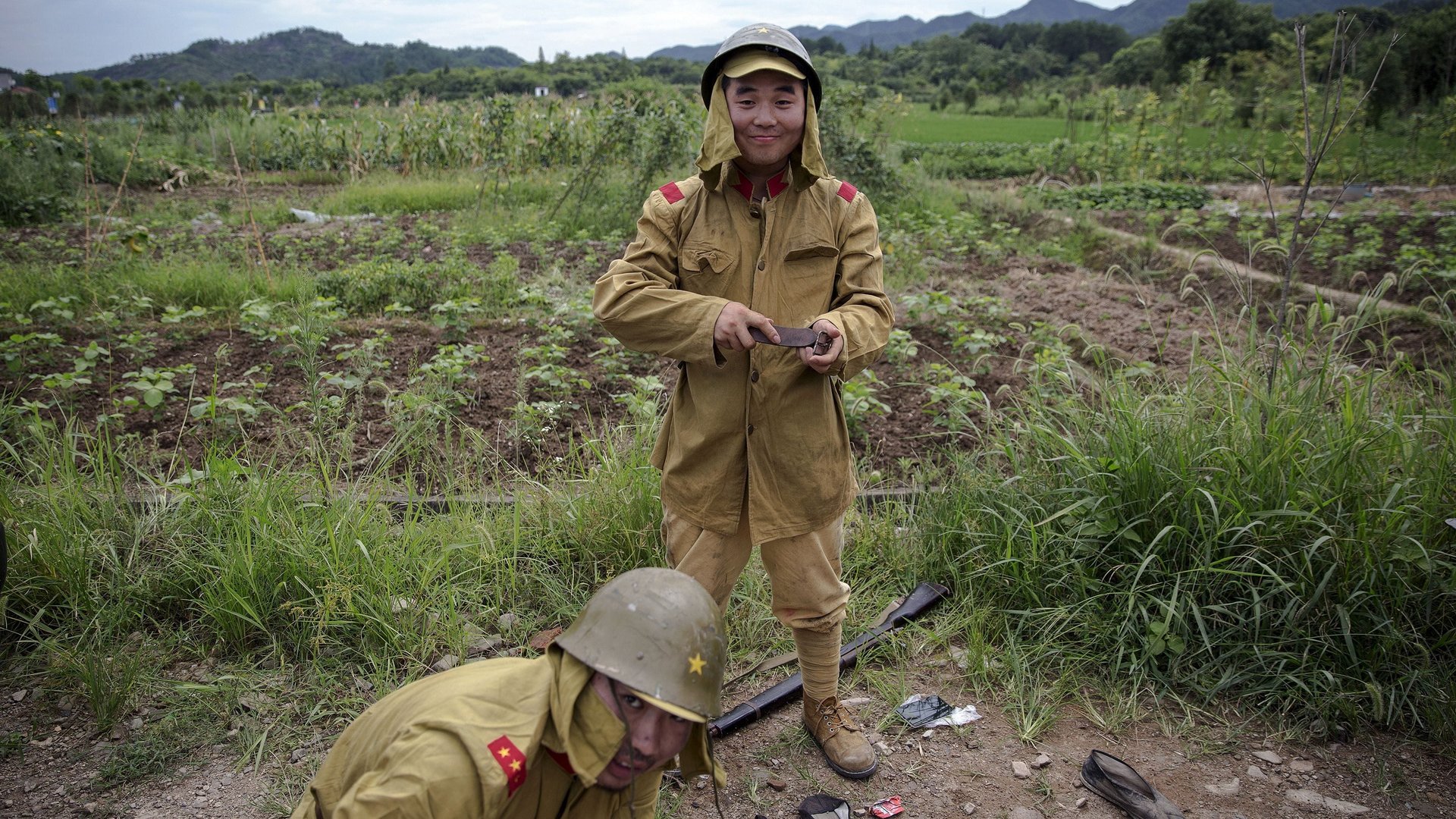Cosplaying as Japanese soldiers could become illegal in China
China is considering punishing those who dress up as Japanese soldiers through a new law that aims to protect those who have sacrificed their lives for the country or the Communist Party.


China is considering punishing those who dress up as Japanese soldiers through a new law that aims to protect those who have sacrificed their lives for the country or the Communist Party.
Yesterday (April 25), the country’s top legislative body introduced the second draft of the proposed “heroes and martyrs protection law,” first unveiled in December and expected to be ratified tomorrow (April 27). According to state media (link in Chinese), the new draft added a clause to punish people who “glorify wars or acts of invasion,” citing the recent incidents of people dressing up as Japanese soldiers during World War II as the reason. It didn’t specify what punishment they might receive.
Photos of Chinese people cosplaying as Japanese soldiers at historical sites have surfaced on Chinese social media in recent months. Known as jingri (精日), or “spiritually Japanese,” the cosplayers are fans of Japanese militarism who want to be seen as Japanese and are ashamed of being Chinese. At a key political event in Beijing last month, Chinese foreign minister Wang Yi slammed them as “scum among Chinese people.”
In 1937, the Japanese army launched a full-scale invasion and occupation of China, resulting in the death of tens of millions of Chinese soldiers and civilians. The war lasted for eight years until Japan surrendered.
The jingri community is a small but increasingly active group that flouts China’s political and societal norms. Patriotic education is mandatory in all public schools in China, with official Chinese and history textbooks typically highlighting the lives of those who died fighting against Japanese invaders.
In February, photos of two Chinese men posing in Japanese military uniforms in front of a memorial site in Nanjing—where tens, if not hundreds of thousands of Chinese civilians were slaughtered by invading Japanese troops in 1937—went viral online. The pair were later kept under administrative detention for 15 days. In a similar case in August, four young men dressed up as Japanese soldiers at a historical site in Shanghai and posted pictures online. Three of them were detained.
The proposed law also punishes those who insult or slander heroes and martyrs, or damage their memorials. It comes amid a series of new legislative efforts to protect China’s symbols of state, such as its national flag and anthem.
The new draft added (link in Chinese) that authorities are allowed to censor online information disseminated from overseas that is harmful to martyrs’ reputations, in line with China’s ever-tightening control over the internet.